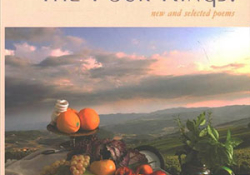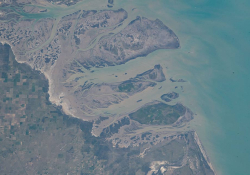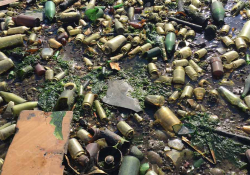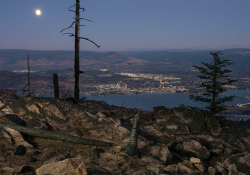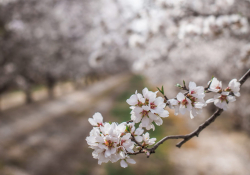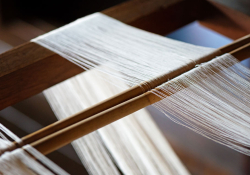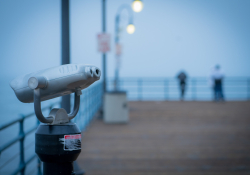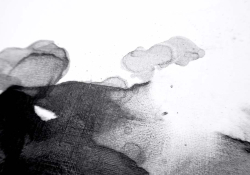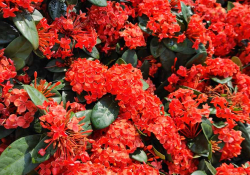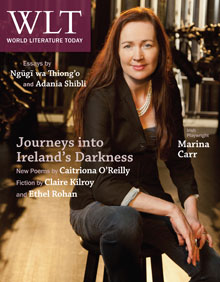Three Poems
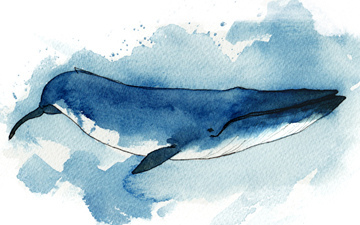
Illustration by Ciaran Duffy/Flickr
The Blue Whale
Our five-year-old daughter bubbles with laughter
as she bounces on her bed, pure joy flashing
in her eyes like the glint of fingerlings in sunlit waves.
Tired now, she settles happily between us to read
a bedtime book about blue whales, far offshore,
singing in the open sea. We learn they are
the largest animals on earth, but only feed
on the smallest things. As we lie on her bed, we notice the small
lashed crescents of her eyelids begin to settle together
like the evening sky closing against the horizon.
We smile at one another, turn lights out, and crescent
our bodies around her like two hands closing in prayer.
We are teaching our daughter to trust the darkness enough
to sleep, so tonight we pretend her bed is a raft,
floating on the sea, while crickets somehow sing outside
our window in the moonlit grass. As she slowly drifts
to sleep, still sucking her thumb, we watch as the rise and fall
of her breath begins to slow and she dreams on the swells of time.
One more time this evening we find ourselves
in this space we make at the end of our days, so we stay
for awhile in the eternal moment, then place two pillows
where our bodies were and wade up the hallway
to our marriage bed, too tired to do much more than lie
on our love raft and whisper a few good words.
Times were, we lived so much for the future that hope
was a thief in our home. All the small things went missing.
But teaching this child we are learning to trust the rise
and fall of our days. We know the unspeakable
grief that lies ahead, and so as we drift to sleep
on our bed, our bodies gently tethered by our embrace,
I imagine we are all gathered together
into one blue being the color of evening, surrounded
by small glittering things as plentiful as stars,
as we sing and float in the vast expanse of time, forever.
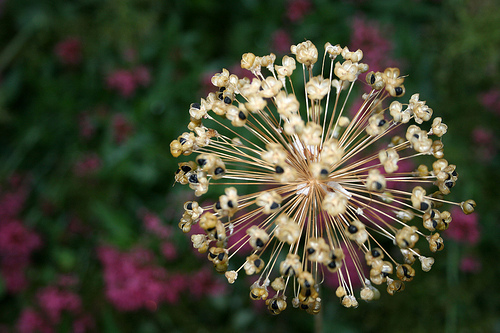
Photo by Katie Elaine Armstrong/Flickr
Independence Day
This afternoon my daughter and I released the ant-farm ants
among the flowers in our garden. They had been sandwiched
between clear plastic walls so we could watch them tunnel
through some green translucent goo the factory sent
that served as soil and food. It didn’t seem right,
so we removed the roof from their slice of world
and let them crawl to the greater world of soil crumbs, leaf-mold,
and forests of flower stalks. I doubt if they thought
of the hands that freed them, but we freed them anyway.
Tonight, outside, we join thousands of other people
crawling the streets to watch the fireworks display.
My daughter rides my shoulders so she can see
beyond the tall stalks of strangers in our garden of humanity.
She is clearly the flower of my life,
and so my hands hold tight onto her legs so she does not fall,
while she watches in awe the giant stalks of sparks that sizzle
suddenly upward in the night and burst overhead
into blossoms of light, dazzles of red, white, blue, gold, and green.
I think of all the sacrifice it took and seems to take
to flower into peace, how even now there are hands unseen
that guard this crowd, and legions of soldier-cells that scour
our inner shores for furtive microbes that oar
in darkness up our streams. What a rhyme
of circumstance it takes to hold our time,
but in the thin slice of time I have,
sandwiched between this dark soil and black sky,
I hold my daughter’s life as best I can.
I know I must release her soon
to the greater world beyond my life,
to flower in the dark night beyond my last thought,
but for the time, being, we are here together, free enough
with space enough for a father’s love and a child’s delight
in a brief season of fire-flowers in a dark garden of light.
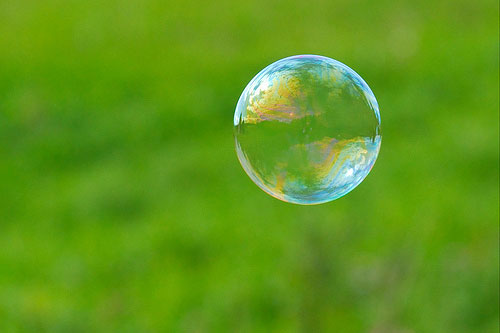
Photo by Rolanda Sjuodzbalis/Flickr
Making Soap Bubbles with My Daughter
Summer evening, sunlight like a smile across our yard,
my daughter watches as I dip the bubble-wand
into the liquid-filled tube and, god-like, sweep my arm
across the air, filling the space around us with iridescent globes
that slowly turn and drift above the lawn, the rainbow colors
shifting on their surfaces like swirling continents.
My daughter, bubbling with joy, chases after them,
turning this way and that to grasp and hold them,
but world after impossible world bursts at her touch.
No matter. It is enough to touch,
and for a good long while I join her in this game
as each sphere bursts and returns its air to the sea of air
we breathe. Then my daughter tires and turns to me
to be held, so we sit in a chair and watch
the sun’s red globe burst against the trees
and splash its light across the clouds.
As the sky darkens into blues and grays,
she turns to face me and fall asleep. I am content
to hold her and watch the twilight turn to dusk,
and the dusk to night, as if a wand beyond our knowing
slowly spreads across the sky and fills the space around us
with worlds beyond anyone’s grasp. But I grasp enough
to know that in my brief time left breathing
on this turning globe, I hold the center in my arms.
And so I rise and turn to enter the house
and carry her up the difficult stairs to her bedroom
and lay her to sleep on her bed beneath the rainbow
we painted on her wall, her yellow wall, in her sun-yellow room,
above the ground, in our two-storied red brick house.
Fred Dings

